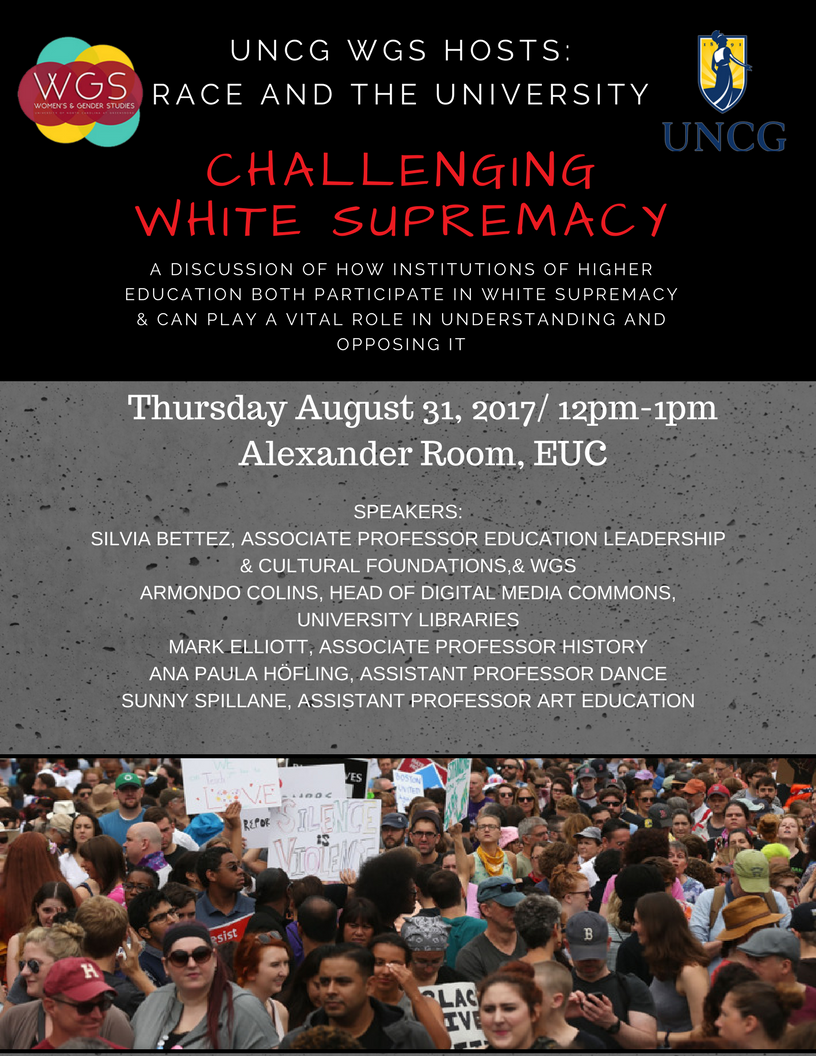
Posted on 09/11/2017
WGS would like to thank everyone who participated in the “Challenging White Supremacy” event last week. Both the panelists and speakers in the audience made some profound contributions to a dialogue that is not easy to unpack. We would like to highlight a couple of key comments to keep the spirit of that conversation alive, and to consider as we go forward navigating a complex society, in honor of peace, unity and deeper understanding.
Dr. Silvia Bettez: “There is no safe space in racial dialogues, racial pedagogy. In fact, conceptions of safe space, are grounded in ideologies of color-blindness, and contribute to white supremacy. Pedagogies that tackle racial power will be most uncomfortable for those who benefit from that power. Emotions of lived experiences must be encouraged in the classroom.”
Sunny Spillane: “ What I did not understand was that whiteness is not just another racial category; it is the axis around which other races are constructed in hierarchical relations of power and privilege. Race is a social fiction that exists in order to maintain White supremacy. Among the many privileges of whiteness is the privilege to ignore race, and to choose which racial battles to fight, privileges people of color rarely have in any context.”
Armondo Collins: “Students want to engage with issues because they are impacted outside of the classroom by these issues. They have questions that will shape the rest of their lives. We need to shift teaching to address what is going on, and away from personal research interests. What we are seeing now is what black people have always known about the society we live in…Blood and soil…Who’s soil, who’s land?…Echoing rhetoric infused in our society since its creation.”
Daniel Chavez: “I cringe at the word academy…reinforcing the idea by ignoring what we can learn from students…As people of color we don’t get to leave that at the door when we come into the classroom. We need to teach students to show up differently with the world, to ‘squad up’ and challenge the anti-intellectualism, encouraging more porous and horizontal dialogue, and ask what do the students need from us?”
Student: “How can students be more collaborative with faculty and be allowed to be experts on their own experiences? Our voices are silenced through casual racist statements as if our points of view are anti-intellectual. Please do not talk about social issues unless you have someone on the ground. Collaborate with people outside the academy and allow students to inform your curriculum.”
We would also like to thank speakers not shown or quoted for their contributions to the dialogue: Ana Hofling and Mark Elliott